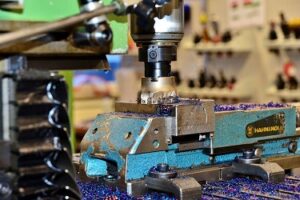 I seem to be on a tool tear, as it were. Over the past several weeks I’ve written about using Scrivener as a writing tool, my little laptop as a bill-paying tool, and habits as tools to help lend structure to my life. But . . . I’ve also emphasized that tools don’t do the work for us. So I’m dedicating this post to two non-tool-users, Woody Allen and K. Lee Scott
I seem to be on a tool tear, as it were. Over the past several weeks I’ve written about using Scrivener as a writing tool, my little laptop as a bill-paying tool, and habits as tools to help lend structure to my life. But . . . I’ve also emphasized that tools don’t do the work for us. So I’m dedicating this post to two non-tool-users, Woody Allen and K. Lee ScottOkay, on to Woody Allen. Let’s leave aside all the scandal about his marriage to his girlfriend’s daughter and look at his work. I will say at the outset here that I’ve seen only one Allen movie as far as I can remember: Play It Again, Sam, and the only reason I saw that one was that it was on a double bill with Casablanca. (I do remember laughing a lot.) So I’m no big fan of his. (I just went on YouTube and watched what are considered to be the best scenes from Annie Hall, which won four Oscars. Can’t quite see what all the fuss was about.) But no one disputes the man’s incredible output. He’s written, produced, and/or starred in almost 70 films or plays. Not all of them have been masterpieces by any means, but he’s won just about every award possible, many of them multiple times. He says that he’s always thinking about work, always figuring something out, always coming up with ideas. So wouldn’t you think that he’d have all the latest tools to work with? Surely his computer is the fastest, his printer the fanciest, his keyboard the most ergonomic? And of course you’d be wrong. Guess what he uses? A typewriter and a stapler. He types things out. Then he cuts things apart, Then he staples things back together in a different order. He doesn’t ever use a computer at all. (It’s fair to point out that someone else has to do the work of putting all this cut-and-stapled material into digital form, but the creation is his.) He also refuses to attend any awards assemblies. He doesn’t read about himself online. (Probably just as well for his mental health.) He refuses, in other words, to use the modern tools (or accept the modern adulation) that are available to him, preferring to use his time to do actual work.
K. Lee Scott isn’t a household name, but he should be. He is a prolific composer and arranger, mainly of church music. I know about him only because of my involvement in the Cherry Creek Chorale, since we’ve performed several of his works. (Read about the latest one here.) Guess what? He doesn’t use a computer for writing his works; the commissioned piece we’re performing arrived in the mail, written out on paper. So, once again, someone else had to get the music printed out and recorded as a MIDI file so that we’d have something to work from as we rehearse. It would have made life much easier for our conductor and our computer guru if they’d had digital files to start with. But he prefers to spend his time, again, writing the actual music. (Although, unlike Allen, he does do periodic Google searches to see who’s performing his works; that’s how he ran across our Chorale.)
Both of these men have consciously or not realized that there is always an inherent cost to tools and that they don’t want to pay that cost. I’m seeing the expense of tools myself with Scrivener; I do think that in the long run it’s going to save me time and enhance my ability to organize my ideas. In the short run, well, I’m still paying. I bought the software and yet another user’s manual; I’d already spent a fair amount of time with the tutorial that came with the trial version. Tolstoy wrote out War and Peace in longhand because he didn’t have any choice (but he did have a wife who did all the recopying of his revisions). Julia Child used a chinoise, a very fine strainer, to make the fish puree for her quenelles back when she first started cooking in the 1950’s since she didn’t have a food processor. No one would use a pen and a strainer today, would they? It’s wise to look at the tradeoffs, though. Nothing comes for free!